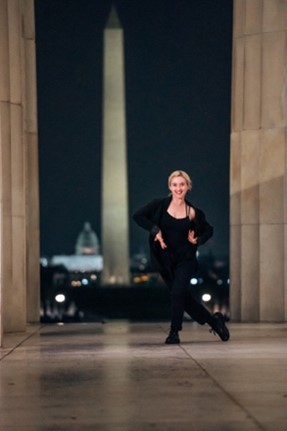 | Michaela Magpile, a student from Columbia University Vagelos College of Physicians and Surgeons. In her essay entitled Compassion Asks Little of Us: The Role of AI in the Art of Rehabilitation, Michaela correlates her passion for dance and the arts with AI in clinical practice. "If a dancer can use music as a tool to inform their work and still be considered a real artist, so too should a clinician be able to conscientiously use AI and still maintain the essence of humanism in their practice; they just need to use AI as exactly what it is – a tool." Michaela warns that relying solely on AI to perform tasks could sideline the value of human-to-human conversation when the provider and patient collaborate on their plan of care. Developing a treatment plan is highly dependent on the patient’s specific goals, concerns, and lifestyle, and ignoring the unique nuances of their situation is akin to ignoring their humanity. |
 | Caitlin Miller, a student from George Washington University. Caitlin's essay, Mirroring Each Other: Beyond AI's Capability, addresses the human bias in the data used by AI and the humanism in physical therapist-patient relationships. "The experience of pain, the priority of certain physical capabilities over others, the processing of grief over a life-altering diagnosis, the responsibilities in work and at home–each of these aspects of a person’s life is important to notice, hear, and value." Caitlin calls on physical therapists to be present with their patients, open to understanding and prioritizing the diverse array of possible experiences, needs, and expectations. In her essay, she outlines the enormous potential for AI in rehabilitation. |